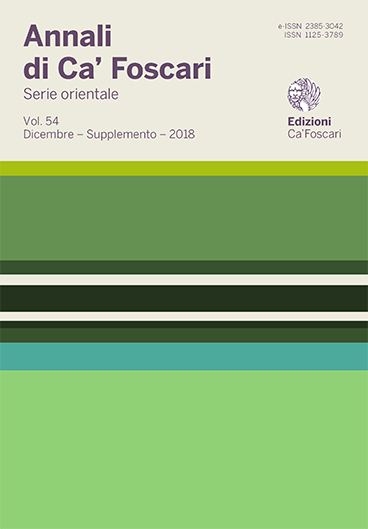Rivista | Annali di Ca’ Foscari. Serie orientale
Fascicolo monografico | 54 | Supplemento | 2018
Articolo | De-orientalising Ritual Blood
De-orientalising Ritual Blood
Abstract
This article uses affect theory to redefine the flagellation rituals performed by the vattienti and to relate them to the Šīʿa celebrations of Āšūrā in Lebanon. The term ‘vattienti’ designates the flagellants of a small village situated in Calabria (Southern Italy), who perform their rituals during the last days of the Holy Week, while Āšūrā indicates the mournful ceremonies dedicated to the martyr Ḥusayn. The paper argues that the two rites create specific affective atmospheres, and that the comparative analysis of these atmospheres – especially in relation to the agency of the Italian and Lebanese performants – allows us to overcome representations of these rituals that are centred on primordial religious fanaticism. Agency, specifically, is considered here as the human capacity to act and to resist social structures. The methodologies used in this research are qualitative and, especially, ethnographic fieldworks, participant observations and in-depth interviews.
Presentato: 06 Luglio 2018 | Accettato: 24 Settembre 2018 | Pubblicato 06 Dicembre 2018 | Lingua: en
Keywords Vattienti • ʿĀšūrāʾ • Orientalism • Affective Atmosphere • Agency
Copyright © 2018 Simona Loi. This is an open-access work distributed under the terms of the Creative Commons Attribution License (CC BY). The use, distribution or reproduction is permitted, provided that the original author(s) and the copyright owner(s) are credited and that the original publication is cited, in accordance with accepted academic practice. The license allows for commercial use. No use, distribution or reproduction is permitted which does not comply with these terms.
Permalink http://doi.org/10.30687/AnnOr/2385-3042/2018/02/022




